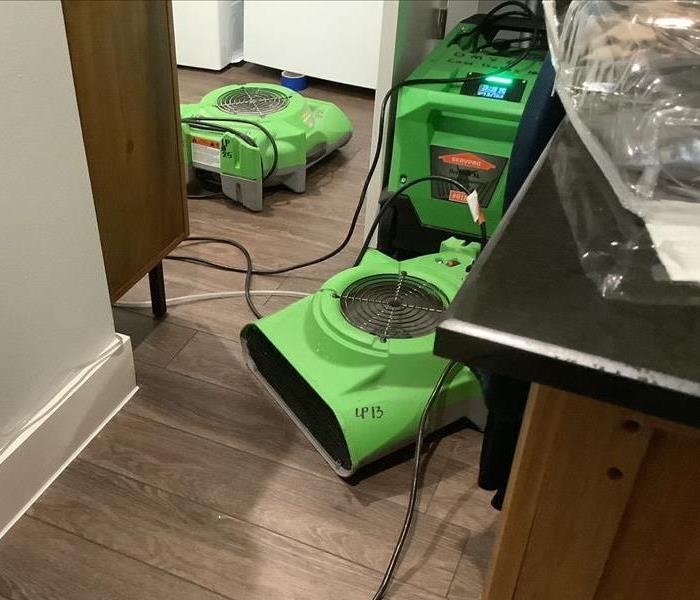Fixing a Water Damage Home isn't too Easy
9/21/2023 (Permalink)
Cleaning up a water-damaged home is a crucial step to prevent further damage and mold growth. Here's a step-by-step guide on how to clean up after water damage in your home:
Ensure Safety First:
- Before entering a water-damaged area, make sure it's safe to do so. Check for electrical hazards, structural damage, and any other potential dangers. Turn off the electricity and gas supply to the affected area if necessary.
Stop the Source of Water:
- Identify and stop the source of water leakage or flooding. This may involve shutting off the main water supply, repairing a burst pipe, or sealing a leak.
Document the Damage:
- Take photos or videos of the water damage for insurance purposes. This will help with your insurance claim.
Remove Standing Water:
- Use a wet-dry vacuum, sump pump, or buckets to remove standing water. The faster you can remove water, the better chance you have of preventing further damage and mold growth.
Dispose of Damaged Items:
- Discard items that cannot be salvaged, such as saturated carpeting, insulation, and drywall. Be sure to document these items for insurance claims.
Dry the Area:
- Use fans, dehumidifiers, and open windows to help dry the affected area. This process can take several days, so be patient.
Disinfect and Clean:
- Clean and disinfect all surfaces that came into contact with the floodwater. Use a solution of bleach and water (one cup of bleach to one gallon of water) for this purpose. Wear gloves and ensure proper ventilation when working with bleach.
Remove Mold and Mildew:
- If mold has already started to grow, you may need to remove affected materials like drywall and insulation. Consult with professionals for extensive mold infestations.
Check for Structural Damage:
- Inspect the structural integrity of your home, including the foundation, walls, and floors. Water damage can weaken these elements.
Repair and Restore:
- Once the area is completely dry and free of mold, repair or replace damaged materials, such as drywall and insulation. Ensure that any repairs are up to code.
Prevent Future Water Damage:
- Take steps to prevent future water damage, such as installing sump pumps, maintaining gutters, and repairing roof leaks.
Consult Professionals:
- For severe water damage or mold infestations, it's advisable to consult with professionals who specialize in water damage restoration and mold remediation. They have the expertise and equipment to handle extensive damage.
Contact Your Insurance Company:
- Notify your insurance company about the damage and follow their instructions for filing a claim. Keep records of all expenses related to the cleanup and repairs.
Remember that water damage can lead to structural problems and health hazards, so it's crucial to address it promptly and thoroughly. If in doubt or dealing with extensive damage, seek professional assistance to ensure the safety and integrity of your home.






 24/7 Emergency Service
24/7 Emergency Service
